Misc.
Information on Hong Kong
|
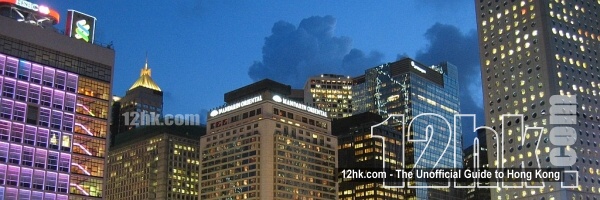
Above: Central
district where a lot of corporations have their headquarters
and different countries have their consulates. |
|
|
|
Churches
There are many churches in Hong Kong, including English-speaking
ones. For a more British format, I would recommend St. Andrew's
in Kowloon. For more of a North American style, Evangelical Community
Church is a good choice. They meet in the YMCA on Salisbury Road
( Tsim Sha
Tsui) on Sundays. There is also a congregation that meets
in Wanchai
area on Hong Kong Island. (Check
their website for the location.) If you check the South
China Morning Post, you can find advertisments from many English-speaking
churches; but then you may have to buy the paper because I couldn't
find it in their site. (also see LINKS
section of this site on churches)
News
There are scores of local newspapers in Chinese. But there are
two local newspapers in English: South China Morning Post and
Hong Kong Standard. SCMP has a higher circulation.
Not counting cable or satellite TV, there are two TV stations,
TVB and ATV. Each of them have two channels: Chinese and English,
well, to a large extent. Sometimes the English channel becomes
the non-Cantonese channel, airing Mandarin, Japanese, Korean,
etc. programming. Check out the LINKS
section for the links to their sites.
|
Currency
In general, Hong Kong dollors are used. But there are many banks
and money changes. Credit cards are also widely accepted, especially
Visa and MasterCard. But then some smaller stores have a minimum
purchase before you can "put it on plastic". And some stores actually
charge you a few percent more for using credit card.
- The exchange rate : about US$ 1 = HK$ 7.8.
- There are thousands of ATMs where you can get cash either
from your credit card or even from your own bank account using
your bank card.
|
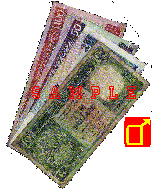
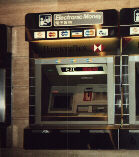
|
|
|
| visa | church | news
| currency | tipping
| staying connected
| useful phones | electricity
| cinema | hints | school
| festivals | time zone
| |
|
|
|
Useful
Phone Numbers
- Emergency : 999
(ambulance, fire, police)
- Hong Kong Tourism Board multilingual visitor hotline:
2508-1234 (country code 852; open 8am-6pm daily)
- Directory assistance : 1081 (English)
- Making a collect call : 10010
(there're probably cheaper options)
See also staying
connected page
|
|
Electricity
220 Volts 50 Hz is the standard and it is quite reliable. 220
means that most U.S. electrical supplies will get fried if you
don't connect the proper transformer to it first. They are available
on Ap
Liu Street in Sham
Shui Po.
Generally electrical outlets are in the British style - three
rectangular legs, the same as those used in Singapore,
but different from those in USA or Australia. Converters can be
bought in many hardware or electrical supplies store or even 10-dollar
shops that are everywhere in Hong Kong nowadays. But beware that
those small ones don't do the voltage conversion for you.
Nowadays most notebook computers can handle from 110 VAC to
220VAC - but check the label on the back first!
|
| visa | church | news
| currency | tipping
| staying connected
| useful phones | electricity
| cinema | hints | school
| festivals | time zone
| housing |
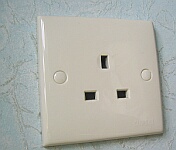
Above:
standard electrical outlets in Hong Kong |
Being an international metropolitan, there're many expatriates working
in Hong Kong in various fields e.g. finance, education, law, medicine,
etc. more
|
|
Cinemas
There are a number of cinemas that show English films in their
original soundtrack - with Chinese subtitles. For a small fee,
you can even reserve your tickets over the phone. On line ticket
purchasing is also available (see the LINKS
section). A word of caution: check the language of the movie because
some of the western movies have two versions: English, and Cantonese-dubbed.
But then that might be a good way to learn some Cantonese!
|
|
Helpful
Hints
Bathrooms
- if you have an urgent "call" and must go, you should not try
to find a public bathroom: there are not that many of them. The
locals usually "borrow" the restrooms at restaurants. Big Chinese
restaurants usually have their own. And so do most McDonald's!
Ones in shopping malls
usually are the cleanest. If you are in a very 'local' area, it
will help for you to know how to ask
for it in Cantonese! more
|
|
Festivals
When it comes to holidays, Hong Kong has the best of both worlds
- the east and the west. In addition to Christmas,
Easter, and New Year, Hong Kong also has a bunch of Chinese festivals
that are public
holidays.
The biggest of all is Chinese
New Year (also called lunar new year). A lot of factories
are closed for a week or even two. Many restaurants also don't
do business for at least 3 days.
Chinese New Year usually falls somewhere in February, varying
from year to year. Unless you want a restful time, Chinese New
Year may not the best time to visit Hong Kong if your stay is
short!

Above : a dragon
boat race in
Shau Kei Wan Typhoon Shelter
The other festivals include Ching
Ming festival, Labor Day (May 1), Buddha's birthday, Dragon
Boat festival, HK SAR Establishment Day (Jul 1), Mid-Autumn
festival (15th day of 8th month on lunar calendar), National
Day (Oct 1), and Chung Yeung festival (lunar 9th day of 9th month).
more...
|
|
Time
Zone
Hong Kong is GMT +8, in the same time zone as Beijing, China.
For people from the U.S., the easiest way is to think this way:
Hong Kong is exactly the same as on the East coast e.g. New York,
D.C., etc., except that you "flip the clock"! 12 noon in New York
is 12 midnight in Hongkong. But then since some States have daylight
savings time part of the year, you have to figure that in as well.
Since Americans "spring forward" and "fall back", so after "falling
back", Hongkong is one hour ahead of New York (but since you have
to flip the clock, that means 13 hours ahead).
Clear as mud?
A side note: actually the time zone in HK can be summed up in one word: fast!
The pace of life in Hong Kong is very fast.
|
|

Schools
If your family is relocating
to Hong Kong and you have kids, you will need to decide what
schools you want to put them in.
The schools you will be most interested in are "international
schools". These are schools where English or a non-Chinese language
is used as the medium of instruction, and most of the students
are from families of expatriates or people with other-than-Hongkong
background. Most of these are private schools - so you can expect
higher school fees. The ESF (English Schools Foundation) schools
are a less expensive alternative.
Check out the links on the international
schools in the LINKS section.
|
| visa | church | news
| currency | tipping
| staying connected
| useful phones | electricity
| cinema | hints | school
| festivals | time zone
| |
|
|
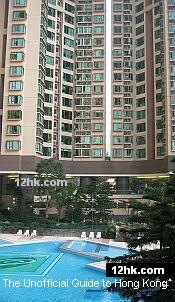
Above: one of the upscale condo
complexes, the Belcher's in Pokfulum area.
|
|
|
Weather
Hong Kong is considered to have sub-tropical climate. What does
that mean? I think it means that unlike the nearby Singapore
where you don't get 4 seasons, Hong Kong does. And the winters
are mild - it doesn't snow, but the summers are hot and sticky.
However, if you're visiting Hong Kong in summer, the indoor weather
could be freezing. With the air-conditioning in full blast, even
though it could be 30 deg. C or more outside (upper 80's deg.
F) with relative humidity of 85%, it still can be 15 deg C inside
(upper 50's F). Pack along a light jacket.
You can check the weather forecast at the Hong Kong Observatory's
website (click
here) - only for the outdoors though. A few typhoons
visit Hong Kong each year, but it is not often for a direct hit
(more about typhoons).
2011.7.9
|
| visa
| church | news | currency
| tipping
| staying connected | useful
phones | electricity | cinema
| hints | school | festivals
| time zone |
|
|
|
|

